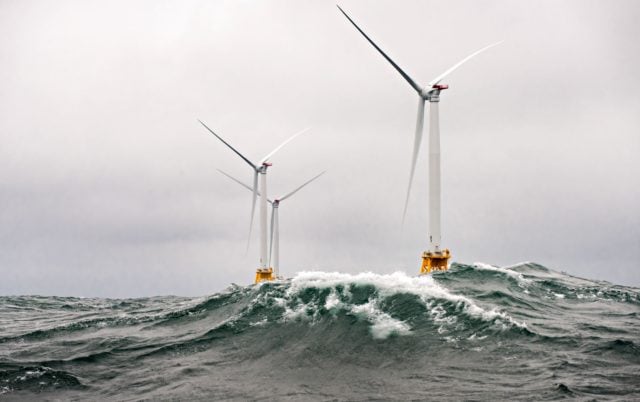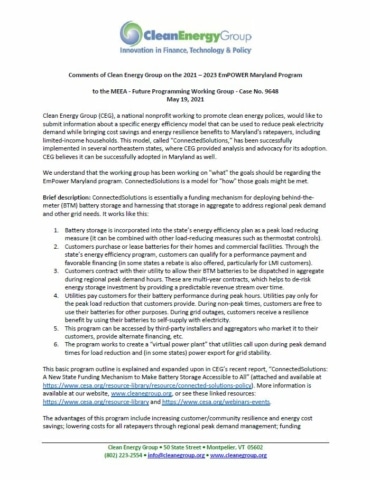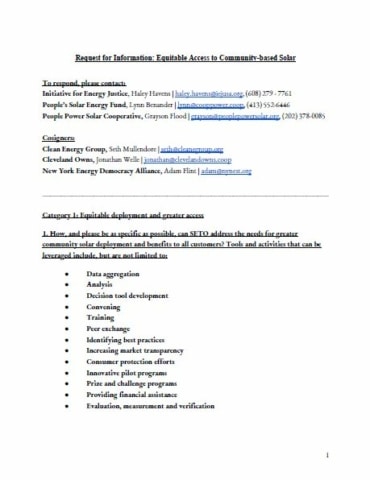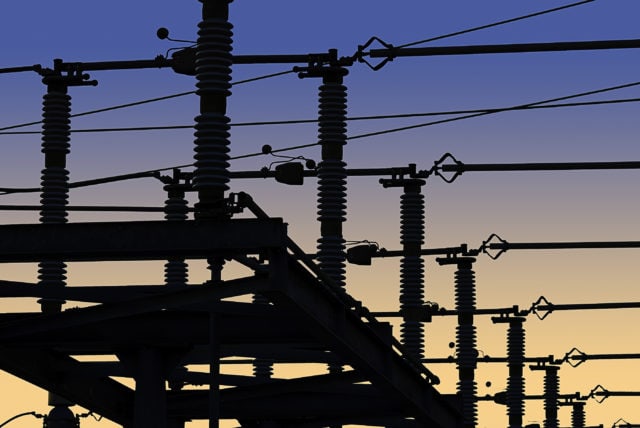This Clean Energy Group webinar will introduce the Resilience Hub concept, explain how the development of Hubs can strengthen local resilience in the face of climate impacts, and discuss the process of conceptualizing and implementing a community Resilience Hub, with a focus on energy resilience measures.
Speakers from Customized Energy Solutions and the Massachusetts Clean Energy Center will discuss storage-as-wires solutions and successful deployments.
In 2015, Connecticut Green Bank, in partnership with the solar and energy efficiency company PosiGen, launched a solar leasing program that targets low- and moderate-income homeowners. Berkeley Lab’s study shows that the program has successfully reached underserved customers and has reasonable repayment rates given the credit characteristics of the participants.
There are now over 40 programs in the US that promote solar adoption by low- and moderate-income households. New research from Lawrence Berkeley National Laboratory takes a look at how they are being evaluated, highlighting trends among evaluation methods, metrics tracked, and best practices employed.
NREL’s Jeff Cook will provide an update on the development of the Solar Automated Permit Processing Platform Plus (SolarAPP+), an online solar permitting platform, and Solar Time-based Residential Analytics and Cycle time Estimator (Solar TRACE), a tool designed to help identify permitting, inspection and interconnection cycle times and related requirements nationwide.









Comments to the Massachusetts EEAC regarding ConnectedSolutions Program Expansion and Revision for 2022-2024
Clean Energy Group submitted comments to the Massachusetts Energy Efficiency Advisory Council regarding ConnectedSolutions battery storage program solutions shortcomings, which should be addressed in the upcoming 2022-2024 Three-Year Energy Efficiency Plan.